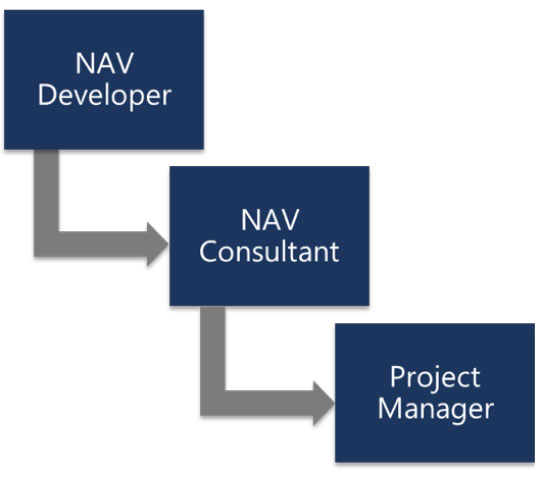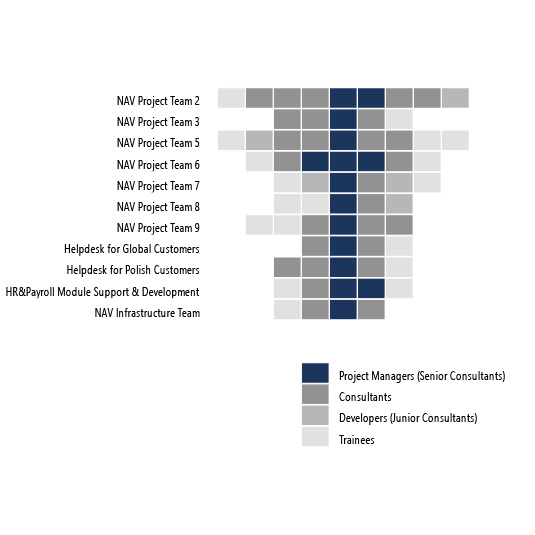Developers or business consultants?
Someone once noticed that the best ideas are those interdisciplinary ones. This rule applies to business too. For instance, if a company is working on the software for some sophisticated medical equipment, the best person to do it is a programmer with medical background. Knowledge of two disciplines gives you a unique perspective. When it comes to ERP systems, their development as well as necessary adjustments should be entrusted to someone who has both business and programming knowledge.
With each new version, Microsoft Dynamics NAV development environment is prepared in such a way as to allow not only a narrow circle of experts to combine the functions of both business consultant and software developer. In case of many other ERP systems, performing these two roles at the same time is practically impossible.
From the very beginning we attached great importance to hiring consultants who have both business and programming knowledge and skills. As this approach has both pros and cons, its validity is sometimes put into question. A few months ago, we held a discussion on the relevance of assigning a special team of Microsoft Dynamics NAV developers. The benefits seemed obvious. In theory, several programmers would ensure the high quality of system adjustments. The difficulty lies in the fact that a great deal of interesting modifications that we prepare for our customers cannot be used in other projects. Modules are not developed for broad use but rather to meet the needs of specific customers. However, when we start a new project for a company with a similar business profile, it is not possible to transfer the previously implemented module just like that. It is easier to build it from scratch. Therefore, it may seem that assigning a separate team of consultants dedicated to software development is an ideal solution.









